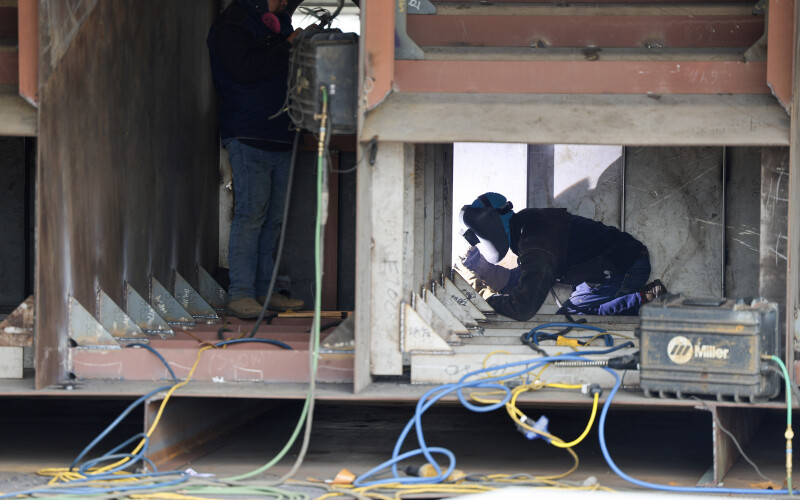Discussions about energy policy are everywhere these days. Whether it’s the skyrocketing rise in demand driven by data centers, the diversity in electricity generation, the grid’s resiliency following a natural disaster, or the ability to extract, transport, process, and export our natural resources to allies across the globe, America’s energy sector is facing a pivotal moment shaped by complex dynamics, new and old.
As our leaders debate the finer points of American energy, I’d encourage them to take a look at how Louisianians approach challenges. The people of the Bayou State prioritize adaptability and resilience. Since our community is all too familiar with the devastation and rebuilding that follows hurricanes and river floods, we strive to diversify the types of infrastructure systems because we know that keeping more options on the table makes us stronger. The same is true for American energy. A well-diversified system will benefit America’s economy, energy independence, and national security, enhancing its ability to respond to current and future challenges.
Louisiana has long been a pioneer in offshore and nuclear energy. We have learned that there is profit in continuing to innovate and pursue new ways to supply our country and our world with energy. These lessons tell us that economic growth comes from the massive supply chain that goes into building, expanding, and supporting these industries, not just the extraction and processing of fuel. Emerging from the need to support offshore operations in deeper and more treacherous waters, the Gulf Coast has long been a hub for the maritime industry, from the construction of offshore oil platforms, to the vessels that transport crews and goods, to warships protecting American interests around the globe.
Our current challenge?
An energy strategy for the U.S. that does not pick winners and losers provides an unprecedented opportunity for our maritime industry. The American shipbuilding industry has been stagnant for decades. The economic and national security consequences of that decline cannot be overstated; while our maritime industry has lagged behind, the global fleet, led by China, has significantly expanded.
Our current domestic shipbuilding initiatives prioritize only our largest shipyards, ensuring their ability to build and deliver our Navy’s most complex and specialized warships. But our military readiness – and energy security – depends on the capacity, ability, and growth of our smaller shipyards. These small and mid-sized shipyards must stay technically competent and commercially viable to be prepared to answer the call and quickly meet our military’s needs. They can do this by continuing to build and maintain commercial and support vessels needed for the offshore energy industry.
The opportunity is straightforward. Louisiana’s economy and the greater Gulf Coast as a whole has long been reliant on offshore oil and gas. However, through an energy policy that prioritizes and encourages the expansion of all types of energy — including offshore wind — we can achieve energy dominance and provide a lifeline to smaller and mid-sized shipyards by promoting diverse industries that keep them in business, train workers in the pipeline, and advance our technological superiority.
As a naval architect and Coast Guard veteran in New Orleans, I know we are hard at work advancing this strategy. In addition to working on offshore oil and gas project components, the construction, maintenance, and operation of offshore wind projects requires specialized vessels and infrastructure, creating an immediate demand for American-made ships, platforms, and equipment. What’s more, the economic benefits of offshore wind go beyond shipbuilding. The sector also increases demand for steel, composites, and specialized equipment, generating opportunities for other American manufacturers and suppliers.
In order to compete with China and regain our foothold in the maritime industry, we need the diversity that offshore wind energy brings to U.S. industries and our economy. Fostering promising new business opportunities with tremendous long-term potential allows Louisiana and America to make more investments in growing our labor force and training new naval architects and marine engineers.
The keys to unlocking our energy future, revitalizing our legacy industries, and securing our position as the global superpower are within reach. Our nation must embody Louisiana’s all-of-the-above energy mindset to reap the downstream benefits of its supply chain, shipbuilding, and technological expertise.




